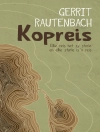In ‘Passages from the French and Italian Notebooks, Complete, ‘ Nathaniel Hawthorne presents a rich tapestry of his reflections during his European travels, seamlessly blending memoir with literary observation. Drawing from his time in France and Italy, this collection is marked by Hawthorne’s signature introspection and profound attention to detail. The work showcases his lyrical prose style, interweaving vivid descriptions of landscapes, social customs, and art, while engaging with thematic elements of identity, culture, and the complexities of human experience within a foreign milieu. This literary endeavor complements Hawthorne’s broader oeuvre by delving into the interplay between the artist and the environment, suggesting that travel is not merely geographical but also a deeply personal exploration of the self. Nathaniel Hawthorne, an influential American novelist known for his exploration of morality and the human condition, drew inspiration from his own journeys abroad. His experiences in Europe, particularly romantic notions of the past and the vibrant intellectual life of his contemporaries, profoundly shaped his artistic sensibility. Having dealt with themes of guilt and redemption in his earlier works, Hawthorne’s travel writings reflect a lighter, yet equally complex, engagement with culture and society beyond the constraints of Puritan heritage. ‘Passages from the French and Italian Notebooks, Complete’ is a compelling read for anyone interested in the intersections of travel, culture, and literature. It invites readers to immerse themselves in the sights and sounds of 19th-century Europe as seen through the discerning eyes of a masterful observer. The book is a treasure trove for those seeking to understand not only Hawthorne’s literary evolution but also the broader landscape of American literature during the period.
Об авторе
Nathaniel Hawthorne (1804–1864) stands as a pivotal figure in the pantheon of American literary greats. Best known for his penetrating exploration of morality, sin, and the human condition, Hawthorne’s writing is characterized by a deep psychological complexity and a dark romanticism. Born in Salem, Massachusetts, his early life was shadowed by his ancestors’ involvement in the infamous witch trials, an event that would later inform his literary sensibility. Hawthorne’s oeuvre includes a rich tapestry of short stories and novels. Notably, ‘The Scarlet Letter’ (1850) remains a defining work of American literature, exploring themes of legalism, sin, and guilt. Likewise, ‘The House of the Seven Gables’ (1851) reflects his interest in the themes of guilt and atonement within a decaying ancestral mansion, an enduring metaphor for the dark side of American history. Apart from his fiction, Hawthorne’s lesser-known ‘Passages from the French and Italian Notebooks, Complete’ reveals his travel experiences in Europe and provides a glimpse into the author’s private musings on culture and art—these notes inform studies on his development as a writer and his later works. Hawthorne’s literary style, heavy with allegory and symbolism, seals his legacy as a master of moral complexity, probing the intricacies of the human heart and society.












